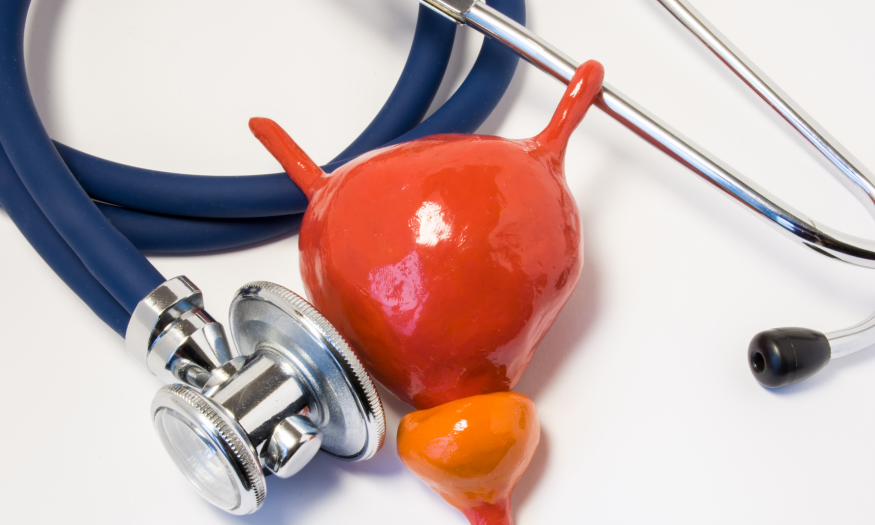Introduction
A healthy bladder is essential to our overall well-being, yet its importance is often overlooked. Many people don’t realize how important a healthy bladder is until they start experiencing problems. In this comprehensive guide, we’ll cover everything you need to know to keep your bladder healthy and prevent common problems.
What is a bladder and why is it important to take care of it?
The bladder is a hollow organ in the pelvic region that is responsible for storing and expelling urine from the body. Healthy bladder function is crucial for maintaining the urinary system and preventing infections and other complications. When the bladder does not function properly, several problems can occur, including urinary tract infections, incontinence, and bladder stones.
Anatomy of the bladder and urinary system
The urinary system consists of four major parts: the kidneys, bladder, ureters, and urethra. Let's take a closer look at each part.
Kidneys
The kidneys are two bean-shaped organs in your lower back, under your ribs. Blood passes through the kidneys as it circulates through the body. The excess fluid and waste products mix with urea produced by the kidneys to form urine.
Bladder
The bladder is a balloon-like organ located below your kidneys. Its job is to collect and hold urine until it is time to leave the body. When your bladder gets full, nerves send a message to your brain that it is time to urinate.
Ureters
Ureters are two thin tubes that connect your kidneys to your bladder. After the kidneys produce urine, the urine travels through the ureters and into the bladder for storage.
Urethra
The urethra is a tube that runs from your bladder to the outside of your body. In women, the opening of the urethra is in front of the vagina. In men, the opening of the urethra is at the tip of the penis.
When it’s time to go to the bathroom, you relax the muscles that support your bladder, known as your pelvic floor muscles. This process softens your bladder muscles and causes two rubber band-like muscles (called sphincters) to widen. Once the sphincters open, urine flows out of your bladder through your urethra and into the toilet.
The importance of a healthy bladder
A healthy bladder helps your body remove excess fluid and waste. It also supports your kidneys so they can function properly. When they are working properly, your kidneys help to:
- Blood pressure regulation: Your kidneys produce hormones that regulate blood pressure. Healthy blood pressure can reduce your risk of heart disease, heart attacks, and strokes.
- Electrolyte Regulation: Electrolytes are salts that conduct electrical energy through your body. They help your muscles move and keep your blood acidity in the ideal range, while ensuring your body maintains a healthy fluid balance.
- Maintaining Healthy Bones: When your kidneys are functioning properly, they can efficiently remove excess phosphorus from the body. Too much phosphorus in your body can lead to a loss of calcium that weakens bones.
- Helps produce red blood cells: Red blood cells carry oxygen throughout your body to keep every system functioning properly. The kidneys produce hormones needed for red blood cell production.
5 Tips for a Healthy Bladder
Here are some practical tips to keep your bladder healthy:
1. Hydration is essential
It is important to drink enough water to keep your bladder well hydrated. Water flushes toxins from your body and helps prevent bladder infections.
2. Watch your diet
Some foods and drinks can irritate your bladder and increase your risk of infection. Avoid caffeine, alcohol, spicy foods, and artificial sweeteners, and choose healthy, high-fiber foods instead.
3. Exercise your pelvic floor muscles
Strong pelvic floor muscles can help prevent incontinence and other bladder problems. Consider incorporating pelvic floor exercises into your daily routine.
4. Avoid prolonged retention of urine
Holding urine for long periods can lead to bladder problems and urinary tract infections. Try to go to the toilet regularly and take the time to empty your bladder completely.
5. Maintain a healthy weight
Being overweight can put pressure on your bladder and increase your risk of incontinence. Maintaining a healthy weight can help keep your bladder healthy and prevent complications.
When should you see a doctor?
If you experience bladder problems on a regular basis, such as pain when urinating, frequent urination, or the inability to completely empty your bladder, it is important to see a doctor. These symptoms may indicate an underlying medical condition that requires professional treatment.
Conclusion
A healthy bladder is essential to your overall well-being and quality of life. By following the above tips and paying attention to your bladder health, you can prevent common problems and enjoy an active and comfortable life.



















